The Asian Skater Boy
A Photo Essay about Asian American Skaters by Andrew Sun
"I think I'm just happy to go skate. I love it more than anything." -Jackson
At sixteen, growing up in Avon, Connecticut, I was inspired by my favorite YouTubers doing skate tricks and wanted to learn them myself. Although I practiced solo and quickly picked up skills, I envied those with friends to skate with. Once I gained confidence at a skatepark, I began making friends and building a supportive skate community. Initially, I skated for the tricks, but I soon discovered a genuine sense of belonging among my peers.
As a Chinese American in a predominantly white town, belonging had always been a struggle for me. In this photo essay, I interviewed three Asian American skateboarders—two from New York and one from outside the city—to explore their experiences with belonging in skateboarding communities. Their stories varied, with some expressing skepticism about community while others shared how they cultivated their own.
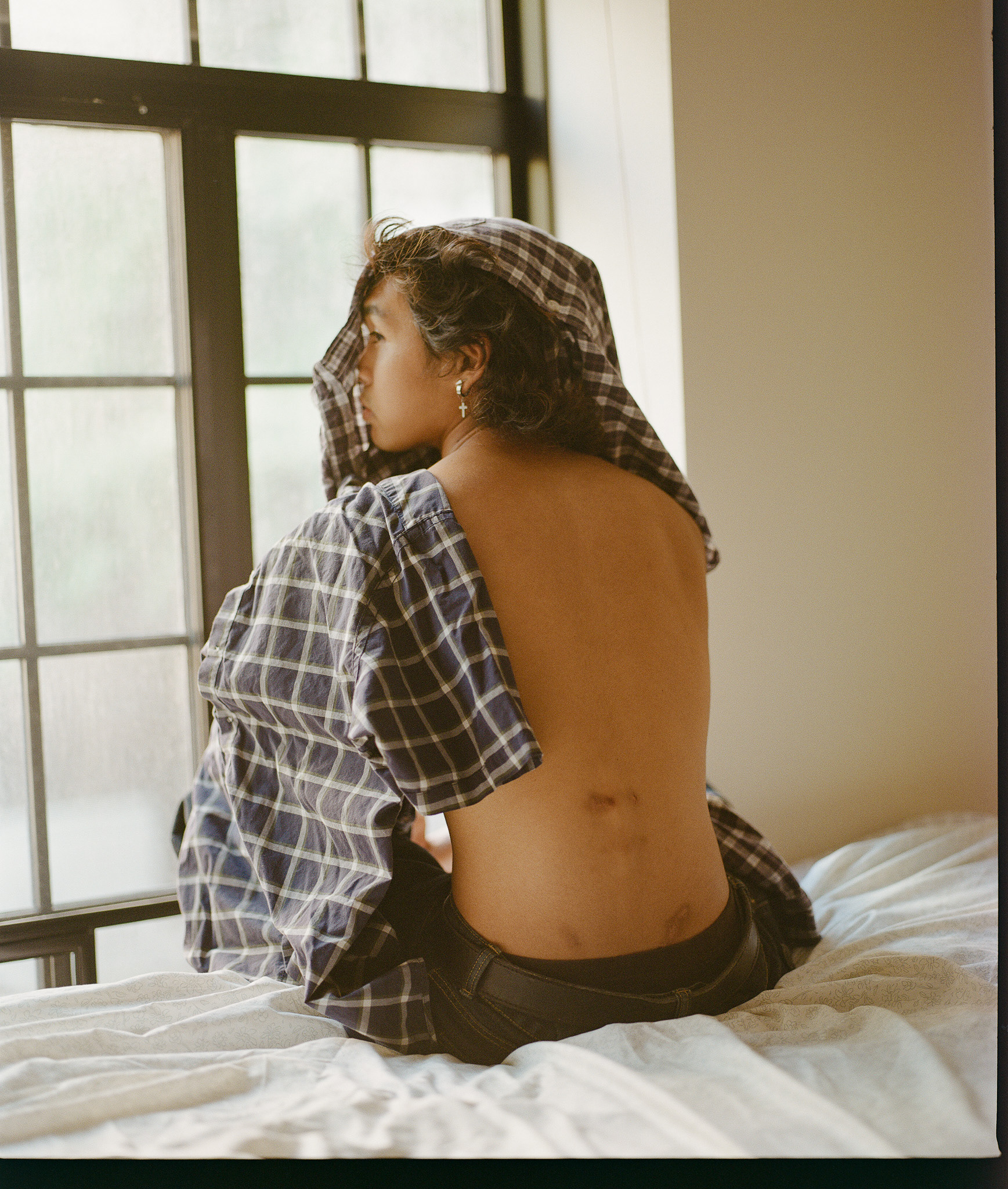
Jackson shows his skate scars.
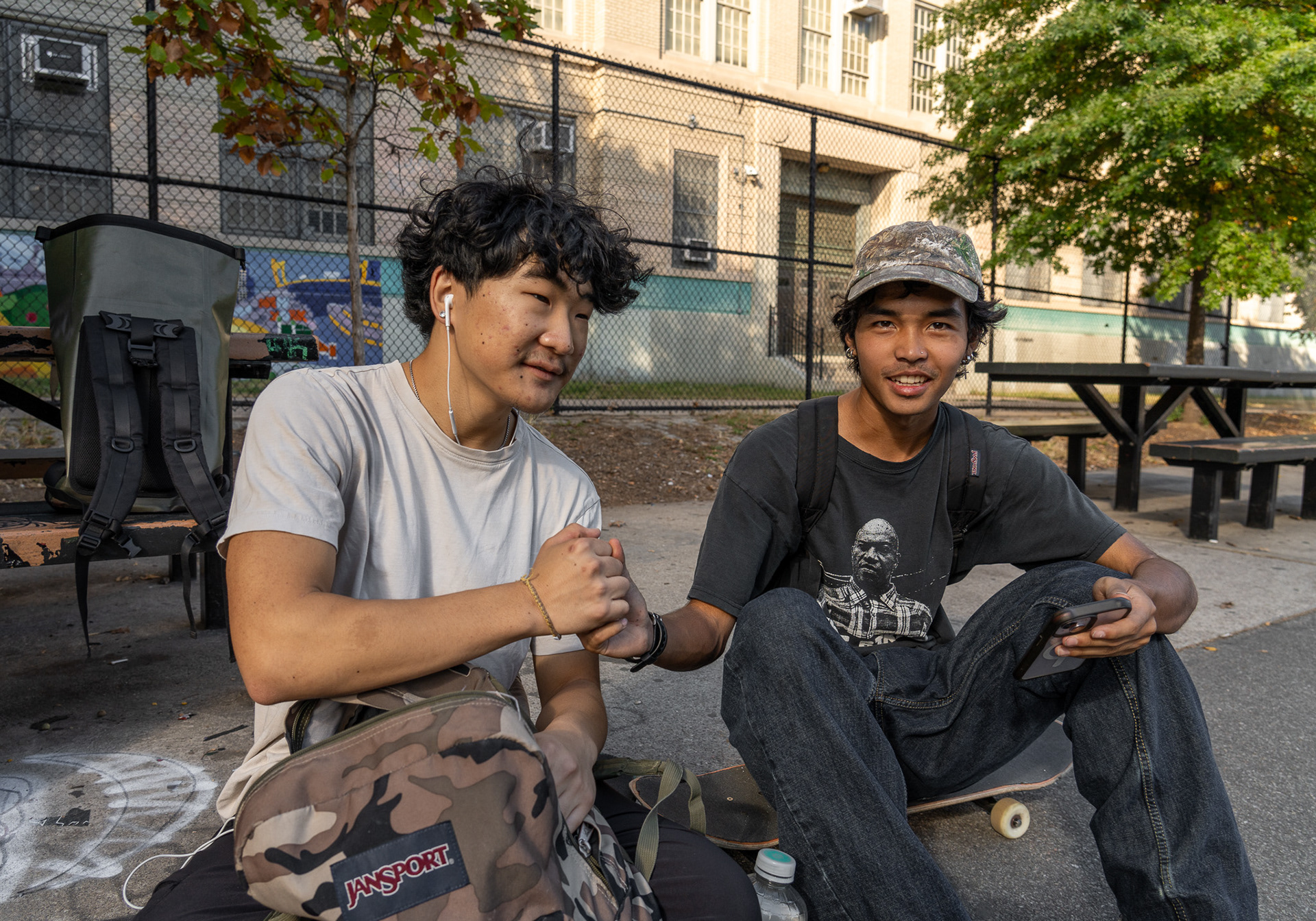
Wyatt and Jackson at Blue Park in Brooklyn
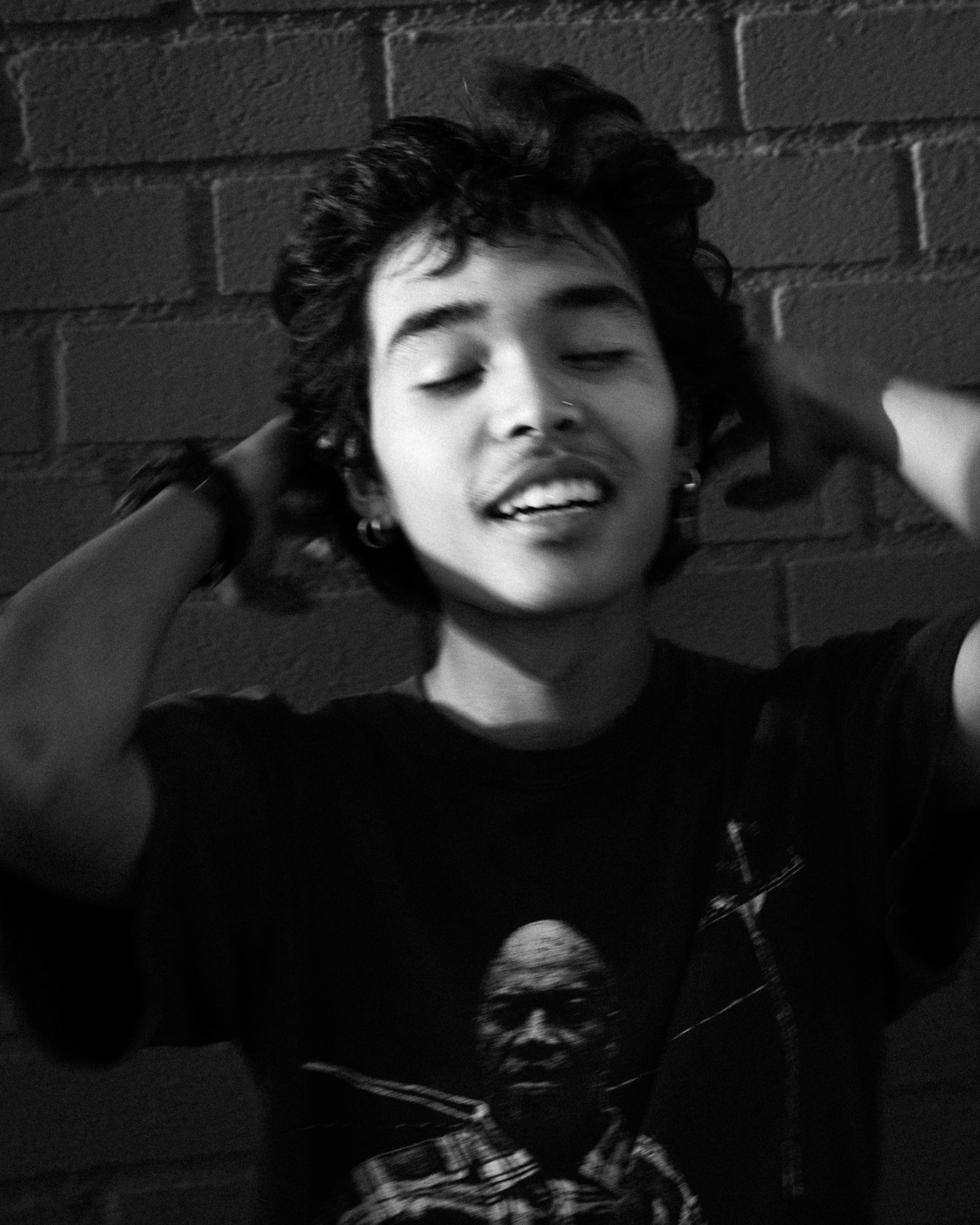
Jackson near Labor Skateshop in BK
JACKSON JUNG-ORTEGA
Jackson Jung Ortega, a skater from East Oakland with Creole, Chinese, and Mexican heritage, grew up in an environment marked by anger and constant tension. This rough upbringing left a lasting impact on his outlook, with an underlying aura of aggression shaping his early years. Skateboarding became his outlet—a way to channel his frustrations and find peace through the motion and challenge of mastering tricks. While Ortega doesn’t seek validation from a skate community or friend group, he skates for the personal satisfaction it brings and as an escape from his everyday life. Skateboarding also bridged a rare connection between him and his father, a bond they both cherish. Now living in New York, Ortega’s heart remains in the Bay Area, where he plans to return after college to continue skating and staying true to himself.
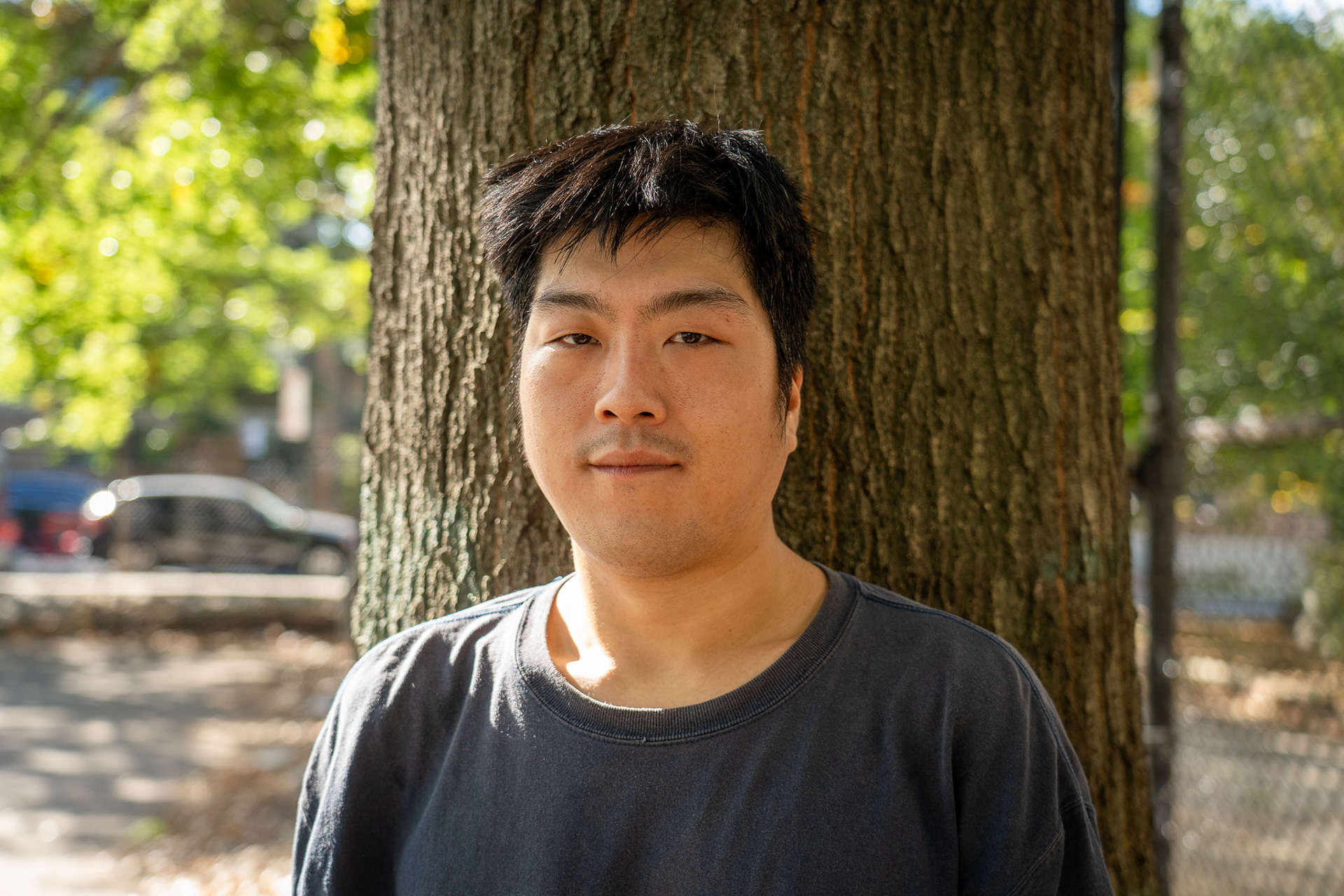
Benson at Blue Park in Brooklyn
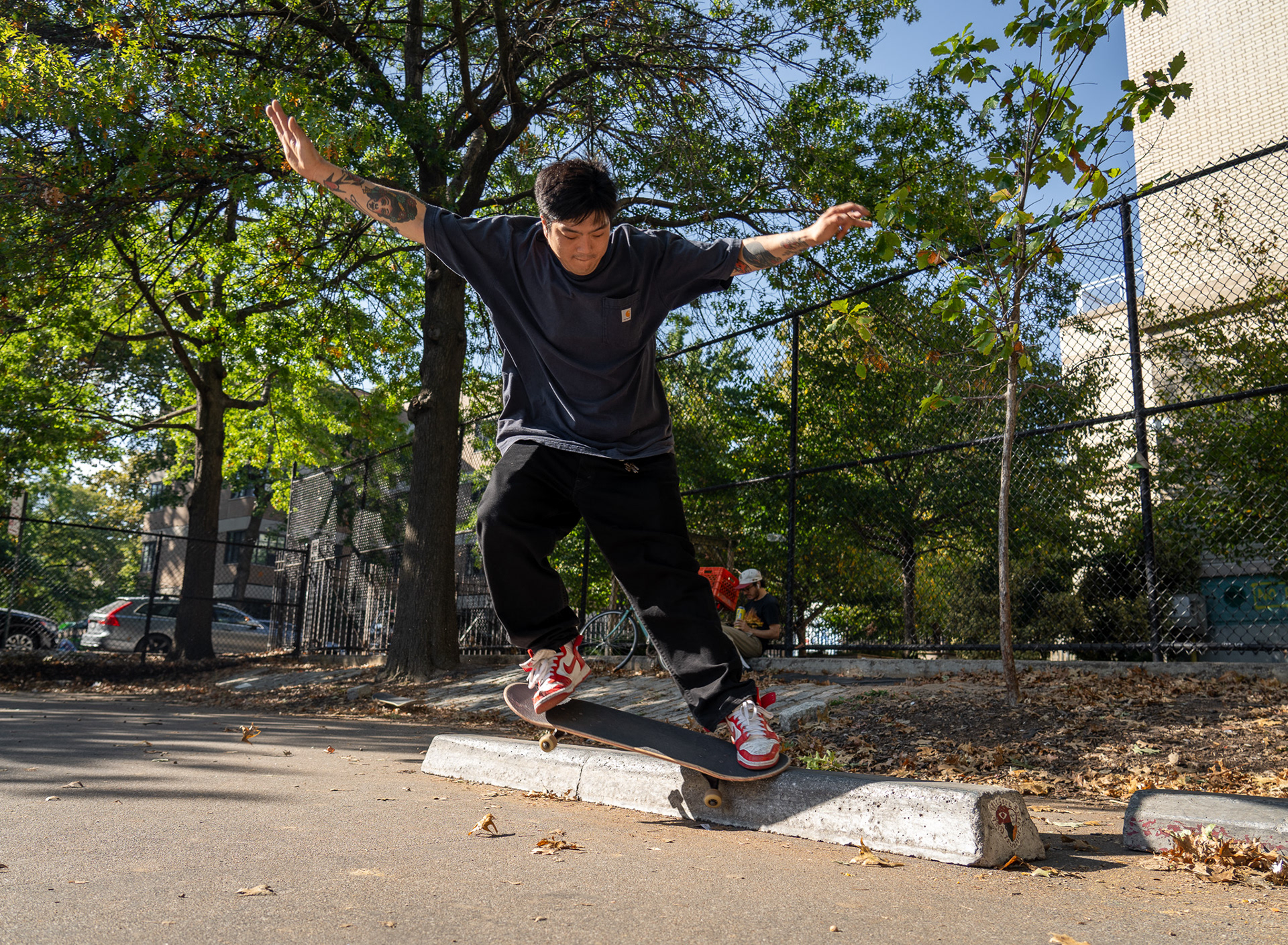
Slappy Crooked Grind by Benson
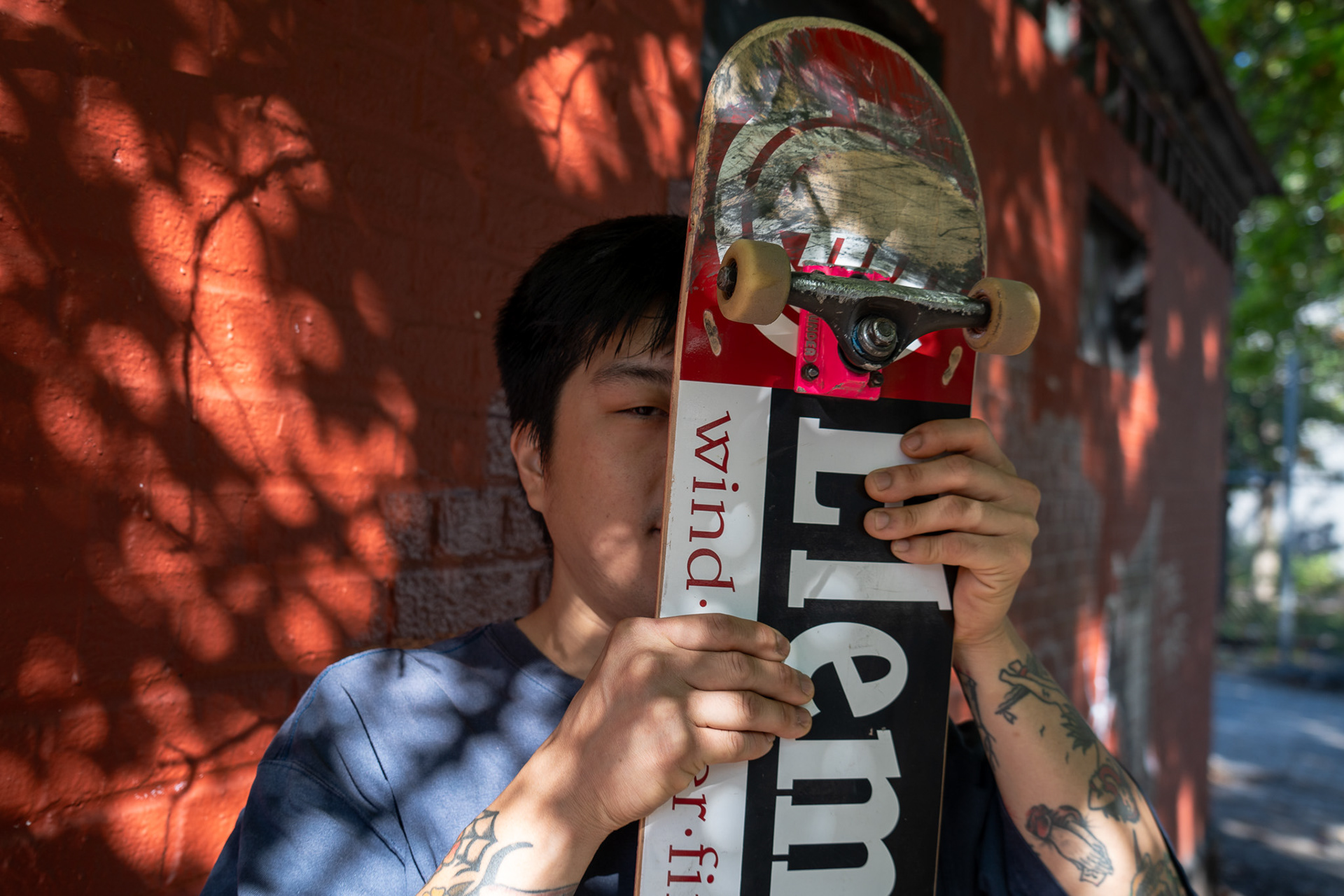
Benson rides an Element Skateboard
BENSON J.
Benson, a Taiwanese American skateboarder from Elmhurst, Queens, found a sense of belonging through skateboarding, something he struggled with as a shy, overweight kid. Growing up in a diverse neighborhood with a strong Asian and Brown community gave him a certain comfort, but it wasn’t until he picked up a skateboard that he found his true outlet. Benson started skating alone, using it as a form of exercise and personal expression. As he transitioned into high school, skating helped him connect with others. He describes his skater group as a judgment-free space, where background didn’t matter—everyone just skated together. Skating became central to his identity, offering not only stress relief and focus, but also a way to reset and connect with others over a shared passion. Through skateboarding, Benson found not just a community, but a means of self-acceptance and empowerment.
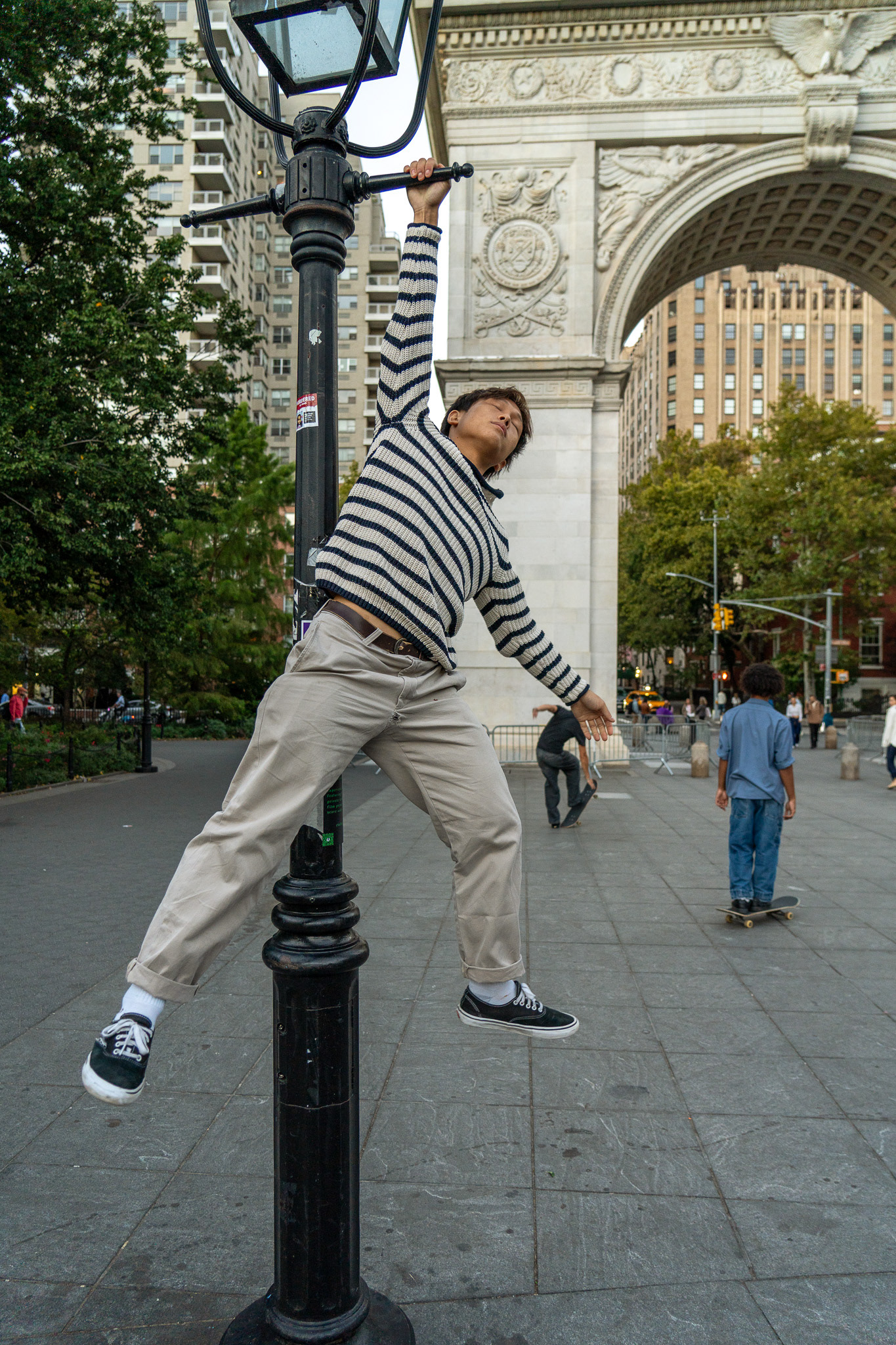
Bryan Zen is known for his athleticism.
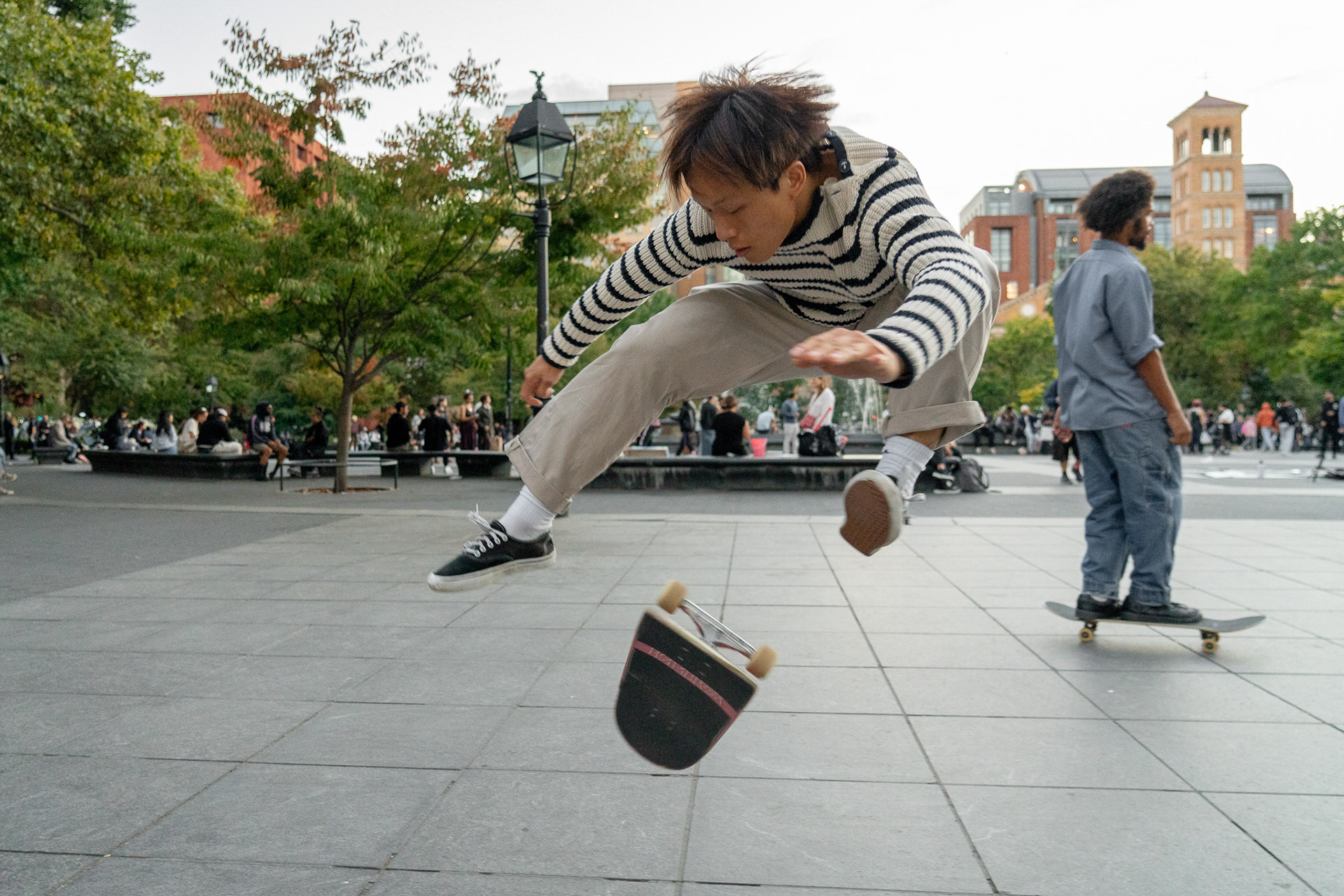
360 Flip performed by Bryan Zen at Wash Sq Park.
BRYAN ZEN
Bryan Zen, a Chinese American skateboarder from Jackson Heights, Queens, turned his passion into a thriving business and community during college by launching "Duck Bud," a brand of custom skateboards. Starting with 60 decks, Bryan sold them at skate events he organized and eventually founded Stony Brook University’s first skateboarding club, which now has over 200 members. His philosophy emphasizes mindfulness and living in the present, using techniques like snapping a rubber band on his wrist to stay grounded and prevent insecurities from taking over. Having faced racism growing up in the Bronx and Queens, Bryan learned to break the cycle of hate and distrust by embracing empathy. He believes skating taught him valuable lessons about staying present, as it helps push boundaries without worrying about others’ judgments. For Bryan, being present not only builds resilience but also enables personal growth, leading to a wiser, more fulfilled life.